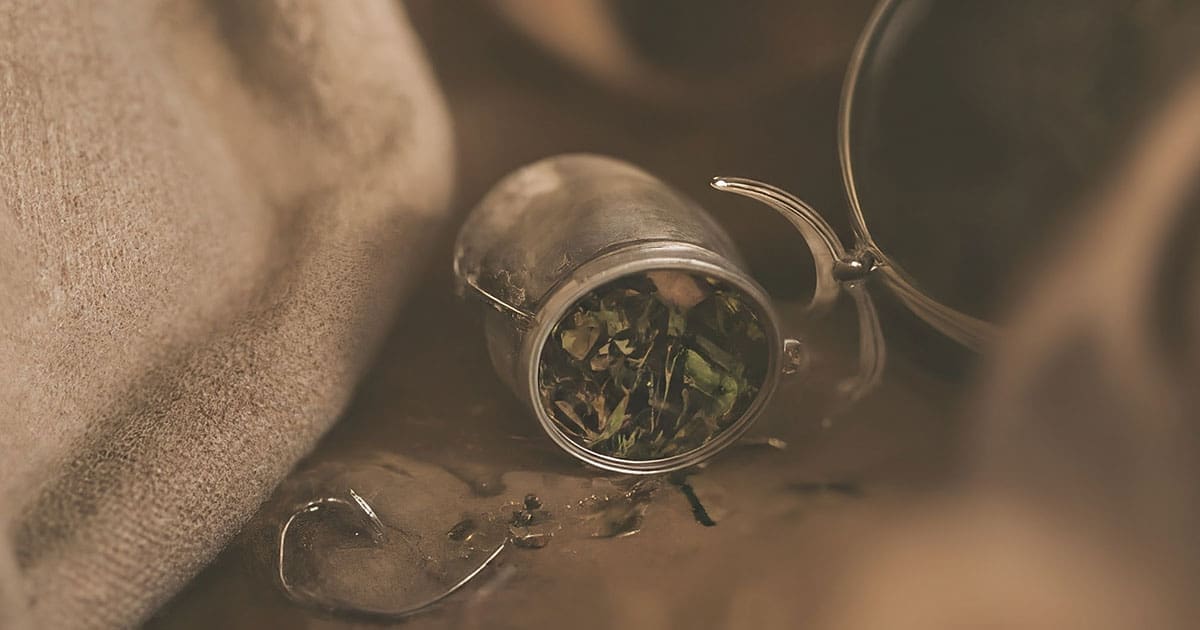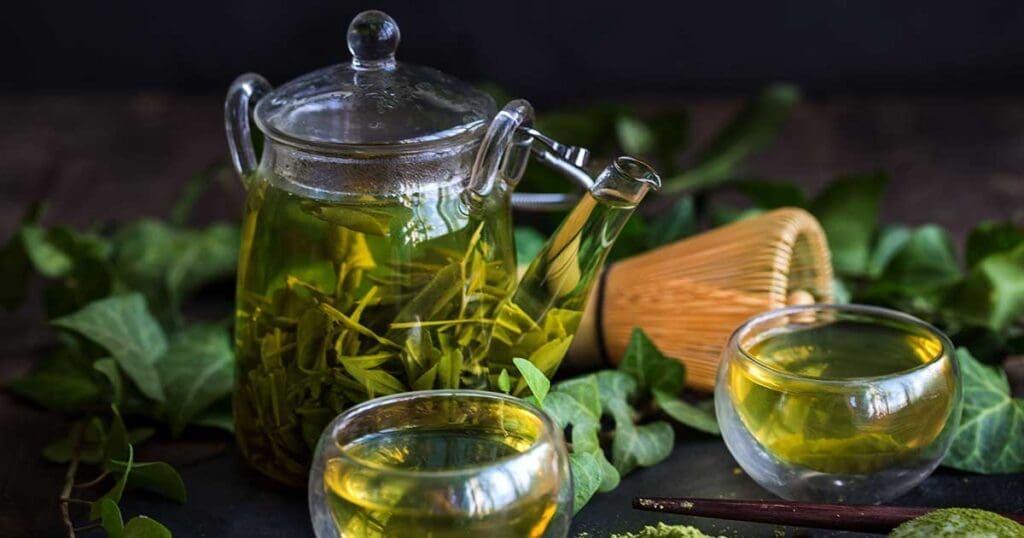Can a simple cup of tea really boost our health? With so many herbal teas out there, picking the right one can be tough. We'll dive into the world of herbal teas, highlighting the top 10 and their health perks.
Key Takeaways
- Herbal teas have been used for centuries to promote health and wellness.
- Top 10 herbal teas offer a range of health benefits, from relaxation to immune system support.
- Herbal tea benefits include reducing the risk of heart disease and certain types of cancer.
- Drinking herbal teas can be a great way to improve overall health and wellbeing.
- Understanding the different types of herbal teas and their health benefits can help us make informed decisions about our health.
- Herbal teas like chamomile and ginger can soothe the digestive system and promote relaxation.
We'll explore the world of herbal teas, including the top 10 and their health benefits. We'll give you the info you need to choose the best tea for your health, focusing on herbal tea benefits and the top 10 herbal teas.
Understanding the Ancient Tradition of Herbal Tea Making
Exploring herbal teas takes us back to ancient times. For centuries, cultures worldwide have used them for health and wellness. They've harnessed the herbal tea benefits of various plants and herbs. From China's tea ceremonies to ancient Egypt's herbal infusions, herbal teas have shaped our tea world.
The history of herbal tea making is rich and fascinating. It spans thousands of years. As we look at the top herbal tea varieties, we'll see the health benefits of herbal tea each offers. From chamomile's soothing effects to echinacea's immune-boosting properties, each tea has its own benefits.
What Qualifies as a Herbal Tea?
A herbal tea is made from dried fruits, flowers, spices, or herbs steeped in water. This broad definition includes many teas, each with its own flavor and health benefits. Popular ones like peppermint, ginger, and hibiscus offer unique health benefits of herbal tea.

The Historical Journey of Herbal Infusions
The history of herbal infusions is long and varied. It began in ancient China, Egypt, and Greece. As trade and cultural exchange grew, herbal teas spread globally, adapting to local tastes. Today, we enjoy a wide range of top herbal tea varieties, each with its own history and cultural importance.
Traditional Uses Across Cultures
Herbal teas have been used in traditional medicine for centuries. Different cultures use them to treat various ailments. From lavender's soothing effects to peppermint's digestive benefits, herbal teas have been key in promoting health worldwide. As we explore the herbal tea benefits of different teas, we'll uncover their rich cultural heritage.
The Science Behind Herbal Tea Benefits
Exploring herbal teas, we must understand their health benefits. Each tea has unique compounds that give it special properties. For example, a study found that hibiscus tea can lower blood pressure in some adults.
A herbal tea list wouldn't be complete without mentioning their antioxidants and anti-inflammatory effects. Research funded by the USDA shows these teas can be good for us. As more people try herbal teas, it's important to know about their benefits and the different types available.

- Chamomile tea showed it can fight off microbes and prevent blood clots.
- Peppermint tea has strong antimicrobial and antiviral effects, and it's good against tumors and allergies.
- Hibiscus tea can help lower blood pressure in some adults.
These studies show herbal teas can be great for a healthy lifestyle. They offer many health benefits. As we keep exploring herbal teas, it's key to stay up-to-date with new research on their benefits.
Top 10 Herbal Teas and Their Health Benefits
We've looked into the world of herbal teas and their health perks. Now, let's check out the top 10 popular herbal teas for better health. These teas help with sleep, boost immunity, and more, naturally.
Teas like chamomile, peppermint, and ginger are great for digestion, stress relief, and immunity. Adding these teas to our daily life can improve our health.
- Chamomile: promotes relaxation and improves sleep quality
- Peppermint: aids in digestion and relieves stomach discomfort
- Ginger: boosts the immune system and reduces inflammation
- Hibiscus: lowers blood pressure and supports heart health
- Echinacea: enhances immune function and reduces the severity of colds
- Rooibos: rich in antioxidants and promotes healthy skin
- Lavender: calms the mind and body, reducing stress and anxiety
- Rosehip: high in vitamin C and supports immune function
- Dandelion Root: aids in digestion and supports liver health
- Lemon Balm: uplifts mood and reduces stress
| Herbal Tea | Health Benefits |
|---|---|
| Chamomile | Promotes relaxation, improves sleep quality |
| Peppermint | Aids in digestion, relieves stomach discomfort |
| Ginger | Boosts immune system, reduces inflammation |
Exploring herbal tea remedies and adding them to our daily life can bring many health benefits. Whether we want better sleep, a stronger immune system, or just to relax, there's a tea for that.
Essential Compounds in Herbal Teas
Herbal teas are known for their health benefits. These benefits come from compounds like antioxidants, flavonoids, and essential oils. They are a natural and healthy drink choice.
Some herbal teas are packed with antioxidants. These help improve health by reducing stress and inflammation. For example, green tea is full of flavonoids, which offer many health benefits.
Antioxidants and Flavonoids
Antioxidants and flavonoids are key in herbal teas. They help fight inflammation and improve heart health. Teas like chamomile and peppermint are rich in these, offering great health benefits.
Essential Oils and Aromatics
Essential oils and aromatics give herbal teas their unique taste and smell. They also have health benefits, like reducing stress and aiding digestion.
Beneficial Minerals and Vitamins
Herbal teas also have minerals and vitamins. These nutrients support overall health. With many herbal tea varieties, you can find one that tastes good and is good for you.
Brewing the Perfect Cup of Herbal Tea
There are many things to think about when making the perfect herbal tea. The type of tea leaves, water temperature, and steeping time all matter. Each one helps bring out the tea's unique flavors and benefits. Start by picking a high-quality herbal tea from a trusted brand like Traditional Medicinals. They have a wide range of popular herbal teas.
Think about the water temperature and steeping time next. For delicate herbs like chamomile and lavender, steep for 5-7 minutes. Heartier herbs like hibiscus and rooibos need 10-15 minutes. The best water temperature is between 190-200°F. Try different steeping times and temperatures to find what works best for you.
Some teas, like peppermint and lemon balm, are best with a short/hot infusion. This method uses hot water for a short time to release oils and flavors. For a calming drink, try chamomile or lavender tea with a longer steep and cooler water.
By following these tips and trying different methods, you can make the most of your herbal teas. Whether you like a soothing chamomile or a refreshing peppermint, there's a tea for everyone. Explore the world of herbal tea and find your new favorite brew.
Seasonal Benefits of Different Herbal Teas
Exploring herbal teas reveals their seasonal benefits. They are more than a trend; they're a path to health all year. Each season has its own herbal tea remedies, from cooling summer blends to warming winter ones.
In summer, peppermint tea cools and calms us. Winter brings ginger tea to fight colds and flu. Spring is for detox teas like dandelion root, and fall is for immune teas like echinacea.
Summer Cooling Blends
- Peppermint tea for its refreshing properties
- Lemongrass tea for its cooling effect
- Hibiscus tea for its ability to lower blood pressure
Winter Warming Varieties
Ginger tea is a winter favorite, protecting the brain and heart, lowering blood sugar, and fighting cancer. Cinnamon and turmeric teas also warm us up, with their anti-inflammatory powers.
Adding herbal tea to our daily lives brings seasonal wellness. Whether it's a calming summer tea or an immune-boosting fall tea, there's always something good. Let's celebrate herbal teas and the wellness they bring.
Combining Herbal Teas for Enhanced Benefits
We can boost the herbal tea benefits by mixing different teas. For instance, green tea with ginger can help with digestion. This mix lets us enjoy the top herbal tea varieties and their special perks.
Some favorite mixes include:
- Peppermint and chamomile tea for relaxation and stress relief
- Ginger and turmeric tea for anti-inflammatory benefits
- Rooibos and rosehip tea for antioxidant intake and immune system support
By trying out various herbal tea benefits and top herbal tea varieties, we can make our own special blends. These blends meet our health needs and likes.
Looking to better digestion, boost immunity, or just relax? Mixing herbal teas is a smart way to get each tea's unique benefits. It helps us create a personalized health and wellness plan.
| Herbal Tea Combination | Benefits |
|---|---|
| Green tea and ginger | Improved digestion and anti-inflammatory benefits |
| Peppermint and chamomile | Relaxation and stress relief |
| Rooibos and rosehip | Antioxidant intake and immune system support |
Safety Considerations and Potential Interactions
Exploring herbal infusions health benefits is exciting. But, we must think about safety and potential interactions. With so many herbal teas out there, knowing the risks is key.
Some teas, like chamomile and ginger, can affect medications. For instance, chamomile might change how blood thinners work. Ginger tea could make bleeding risks higher when taken with certain meds. Also, hibiscus tea can lower blood pressure and affect estrogen levels.
It's wise to talk to a doctor before drinking herbal teas. This is true if you have health issues or take medicines. Also, be careful with teas like valerian, as they can mix badly with sedatives and other drugs.
- Consult with a healthcare professional before using herbal teas, if you have health issues or take medicines.
- Know how herbal teas might interact with your meds, like blood thinners and sedatives.
- Stick to the recommended amount and guidelines for each herbal tea.
| Herbal Tea | Potential Interaction |
|---|---|
| Chamomile | Blood thinners like warfarin and cyclosporine |
| Ginger | Blood-thinning medications |
| Hibiscus | Blood pressure and estrogen levels |
Storing and Preserving Your Herbal Teas
To enjoy your popular herbal teas fully, proper storage is key. It keeps their flavor and health benefits intact. Store them in a cool, dry spot, away from sunlight and moisture.
Use airtight containers to keep your teas fresh. Glass jars or bags work well, just make sure to seal them well. This keeps air, moisture, and light out.
Follow these tips to make your herbal tea for wellness last longer. Always check the expiration date. Use them within the recommended time for the best benefits.
Common Myths About Herbal Teas Debunked
Exploring herbal teas means sorting out truth from myth. Many myths surround their benefits and potential drawbacks. We'll look into these myths, giving you the facts to guide your herbal tea choices.
Some think all herbal teas are the same. But, different teas offer unique herbal tea benefits. For example, peppermint and chamomile calm you down. Ginger and hibiscus teas help with digestion and boost your immune system.
Another myth is that herbal teas are safe for everyone. While mostly safe, some teas can cause side effects or interact with medicines. Always talk to a doctor before drinking herbal teas, if you're pregnant, breastfeeding, or have health issues.
Here are some key facts to remember:
- Most herbal teas don't have caffeine, except for guarana and yerba mate tea.
- Some teas can cause allergic reactions or interact with medicines.
- Not all herbal teas are safe for pregnant or breastfeeding women.
Choosing high-quality teas is key to enjoying herbal tea benefits. Look for brands that use top herbal tea varieties and follow strict quality standards. This way, you can enjoy the benefits while avoiding risks.
In conclusion, knowing the myths about herbal teas is crucial. Approach them with a critical and informed mindset. This way, you can enjoy their many herbal tea benefits and live a healthier, more balanced life.
| Herbal Tea | Benefits | Precautions |
|---|---|---|
| Peppermint | Digestive soothing properties | May interact with certain medications |
| Chamomile | Calming effects | May cause allergic reactions in some individuals |
| Ginger | Digestive and immune-boosting properties | May interact with blood thinners |
Conclusion: Embracing the Natural Power of Herbal Teas
Herbal teas are more than just a drink. They are a gateway to health and wellness. These ancient infusions soothe the mind and body. They also provide essential nutrients.
Looking for a way to boost your immunity or ease digestion? There's a herbal tea for that. Ginger, chamomile, and peppermint can help with various health issues. Rooibos and hibiscus, rich in antioxidants, support heart health and slow aging.
Start exploring the world of herbal teas and find what works best for you. Adding these teas to your daily routine can lead to a healthier life. It's a simple step towards wellness, one sip at a time.
Disclaimer:
Some of the links on this site are affiliate links, which means I may earn a small commission if you make a purchase through them, at no additional cost to you. Thank you for supporting Brew Sip Repeat!




Facebook Comments